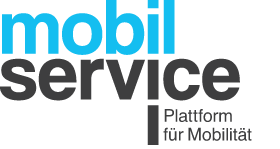The date of the Data Science and Mobility Conference
zugeordnete Tags/Schlagwörter
Several revolutions have contributed significantly to the development of our modern society, from the period of mechanisation, mass production and automation through to that of cyber physical systems. Throughout this evolution, mobility growth has always been a key challenge. Mobility stakeholders have endeavoured to offer optimal and coordinated transportation services, both by analysing people’s mobility expectations and by introducing innovative technologies.
Data science has played an important role in some specific fields in recent years but its potential is certainly much greater. Data is extremely abundant and still under-utilised, especially in the field of mobility. It is aggregated or desegregated, confidential or public, sorted or unstructured. Experts, data scientists and data providers all agree that data could make people’s lives much easier and add a great deal of value, for example by predicting demand, extending a service or improving operations or productivity.
Given that big data is growing so rapidly, we would like to identify different approaches to turn this challenge into growth opportunities for business and society. The idea would be to answer some of the following questions:
- How can we design the best transportation systems by taking future developments (i.e. population growth and lifestyles evolutions) into account?
- How can we better inform users of optimal routings and guide passengers in transit areas?
- How can we tackle capacity issues, using for example price differentiation (peak/off-peak) ?
- How can we anticipate and design future transport infrastructures?
- How can data science improve the coordination of different transport operators ?
- How can we set-up prediction maintenance to reduce operation costs?
- How can data science improve transportation?
Veranstalter
EPFL and CFF
Weitere Informationen
Datum & Ort
- 31.01.2018, Lausanne (CH)



